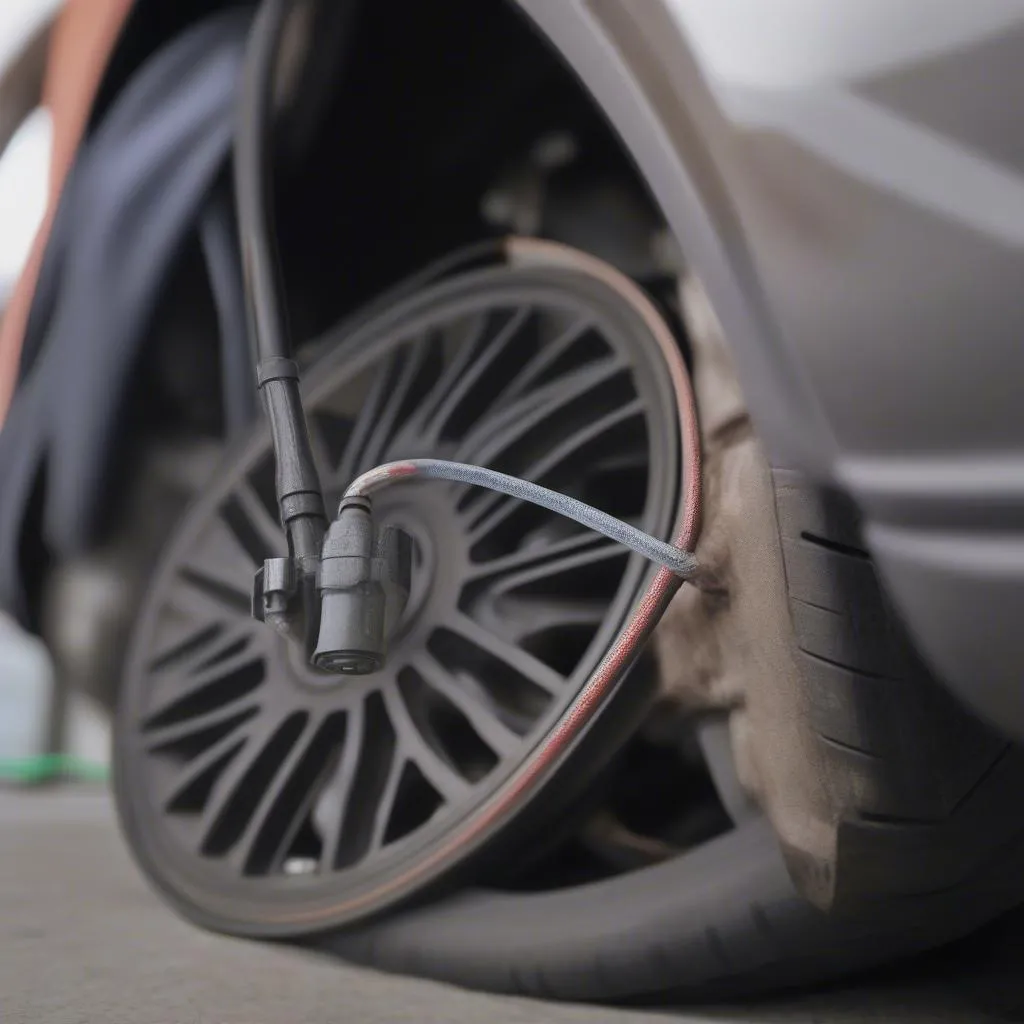Have you ever been driving down the road and suddenly noticed the ABS light illuminate on your dashboard? It can be a bit unnerving, especially if you’re not sure what it means. Don’t worry, you’re not alone! This is a common problem that many drivers encounter.
Understanding the ABS Light
The ABS light, short for Anti-lock Braking System, is a crucial safety feature in your vehicle. It’s designed to prevent your wheels from locking up during emergency braking, giving you more control and helping you avoid skidding. When the ABS light comes on, it’s a signal that there’s a problem with the system that needs to be addressed.
Why is the ABS Light On?
Several reasons could trigger the ABS light. Here are some common culprits:
1. Faulty ABS Sensors
ABS sensors are strategically positioned on each wheel to measure their speed. When these sensors malfunction, they send inaccurate information to the ABS module, causing the light to come on.
2. Damaged Wiring
The wiring connecting the ABS sensors to the module can be damaged due to wear and tear, rodents, or environmental factors. This can lead to broken circuits, resulting in the ABS light illumination.
3. Issues with the ABS Module
The ABS module is the “brain” of the system, processing the information received from the sensors. If the module itself is malfunctioning, it can trigger the ABS light.
4. Low Brake Fluid
While not directly related to the ABS system, low brake fluid can also activate the warning light. The fluid level sensor can detect a drop in fluid, signaling a potential problem with the braking system.
What to Do When the ABS Light Comes On
1. Don’t Panic!
The ABS light doesn’t always indicate a catastrophic failure. In many cases, it could be a minor issue that can be easily resolved.
2. Check the Brake Fluid
Ensure the brake fluid level is within the appropriate range. If it’s low, top it up. If the fluid level is consistently dropping, there might be a leak in the system, requiring professional attention.
3. Look for Warning Signs
Pay attention to any unusual noises or sensations while braking. If you notice a grinding sound, spongy brakes, or the car pulling to one side, seek immediate professional help.
4. Seek Professional Diagnosis
To pinpoint the exact cause of the ABS light, it’s crucial to have your car inspected by a qualified mechanic. They will use a diagnostic scanner to read the fault codes stored in the ABS module.
 ABS Sensor Malfunction
ABS Sensor Malfunction
Frequently Asked Questions
How Dangerous is it to Drive with the ABS Light On?
While not immediately dangerous, driving with a faulty ABS system can significantly compromise your safety, especially during emergency braking situations. It’s essential to address the problem promptly to ensure your vehicle is safe to drive.
Can I Reset the ABS Light Myself?
In some cases, you might be able to reset the ABS light by disconnecting the battery for a few minutes. However, this doesn’t address the underlying issue and might lead to further complications. It’s always best to seek professional help for a proper diagnosis and repair.
How Much Does it Cost to Fix the ABS Light?
The cost of fixing the ABS light can vary greatly depending on the cause. Replacing a faulty sensor can be relatively inexpensive, while repairing a damaged module could be more costly.
What to Expect When Taking Your Car for Repair
When you take your car to a mechanic, they will:
- Diagnose the problem: They’ll use a diagnostic scanner to read the fault codes stored in the ABS module.
- Inspect the ABS system: They’ll physically inspect the ABS sensors, wiring, and module for any damage or wear and tear.
- Repair or Replace components: Based on the diagnosis, they will repair or replace faulty components, such as sensors, wiring, or the module.
- Test the system: Once the repairs are complete, they will test the ABS system to ensure it’s functioning correctly.
 ABS System Repair
ABS System Repair
Conclusion
The ABS light illuminating on your dashboard can be a bit alarming, but it’s important to remember that it’s not always a major issue. By following the steps outlined above, you can take the necessary precautions to ensure your safety and have the problem diagnosed and repaired promptly. Remember, a properly functioning ABS system is crucial for maintaining control of your vehicle, especially during emergency braking situations.
If you need help diagnosing and repairing your car’s ABS system, don’t hesitate to contact us! We offer professional diagnostics and repair services for all makes and models of vehicles. Our team of experienced mechanics is available 24/7 to assist you with any car problems you might have. Contact us today for a free consultation!
Call us at +84767531508 or WhatsApp us to schedule an appointment.
Related Articles
- Chrysler ABS Scan Tool
- Scan Tool for 2001 Chevy ABS Proportioning B-Valve Diagram
- Why Does My Engine Light Keep Coming On and Off?
- ABS Light Comes On Randomly
- What Does Brake Mean on Dashboard
Do you have any other questions about your car’s ABS system? Leave a comment below, and we’ll be happy to help!